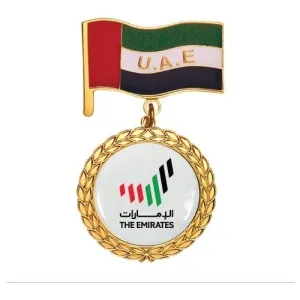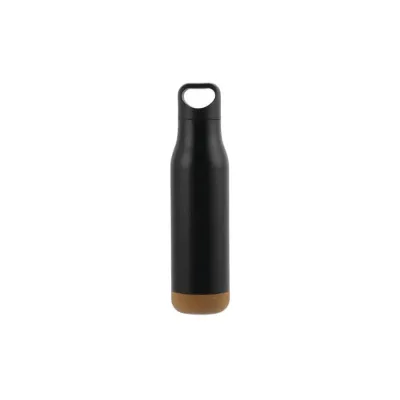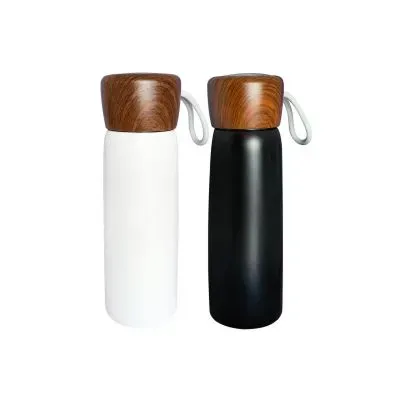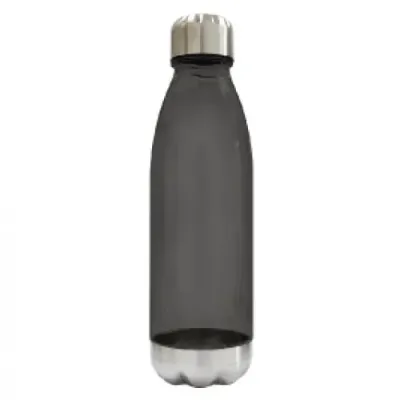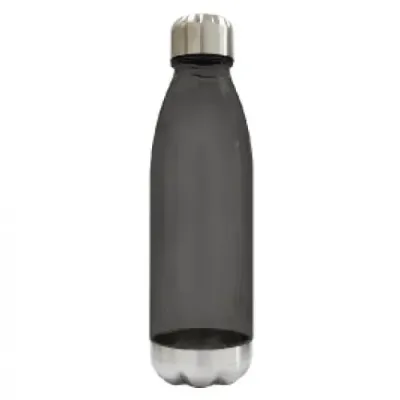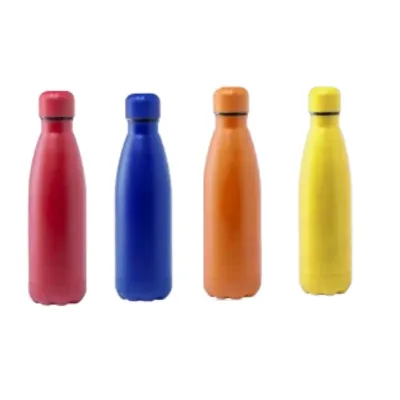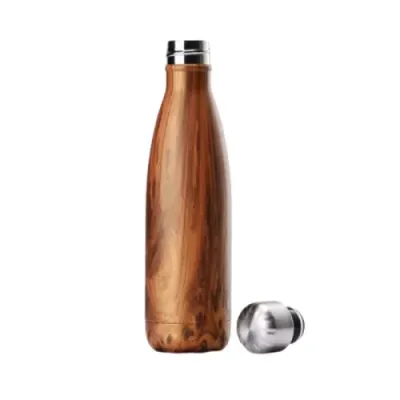How Elzit is Revolutionizing the Plastic Bottle Industry
How Elzit is Revolutionizing the Plastic Bottle Industry
The plastic bottle industry has long been criticized for its detrimental environmental impact, with concerns ranging from plastic pollution in oceans to the depletion of finite resources. However, amidst growing environmental awareness and regulatory pressures, companies like Elzit have emerged as pioneers in sustainable innovation, reshaping the landscape of plastic bottle manufacturing. This essay explores how Elzit is revolutionizing the plastic bottle industry through its commitment to sustainable innovation, examining key initiatives, technologies, and strategies that are driving positive change.
Understanding the Plastic Bottle Industry
Before delving into Elzit's sustainable innovations, it's essential to grasp the dynamics of the plastic bottle industry. Plastic bottles are ubiquitous in modern society, used for packaging beverages, personal care products, household cleaners, and more. The primary materials used in plastic bottle manufacturing are polyethylene terephthalate (PET), high-density polyethylene (HDPE), and polypropylene (PP). While plastic bottles offer convenience and affordability, their production, usage, and disposal pose significant environmental challenges.
Challenges Facing the Plastic Bottle Industry
The plastic bottle industry faces several sustainability challenges, including:
Environmental Pollution: Plastic bottles contribute to environmental pollution, particularly marine pollution, as they often end up in oceans, harming marine life and ecosystems.
Resource Depletion: The production of plastic bottles relies on finite fossil fuel resources, contributing to resource depletion and greenhouse gas emissions.
Waste Management: Improper disposal and inadequate recycling infrastructure result in significant volumes of plastic bottles ending up in landfills or incineration facilities, exacerbating environmental degradation.
Elzit's Approach to Sustainable Innovation
In response to these challenges, Elzit has adopted a holistic approach to sustainable innovation, focusing on three key pillars: material innovation, manufacturing processes, and circular economy initiatives. Let's explore each of these pillars in detail:
Material Innovation
Elzit is at the forefront of material innovation, researching and developing sustainable alternatives to conventional plastic resins. One notable initiative is the utilization of bio-based plastics derived from renewable sources such as sugarcane, cornstarch, or cellulose. These bio-based plastics offer similar properties to traditional plastics but have a significantly lower carbon footprint and are biodegradable or compostable, addressing concerns related to environmental pollution and resource depletion.
Additionally, Elzit is exploring the use of recycled plastics, integrating post-consumer recycled (PCR) resin into its manufacturing processes. By diverting plastic waste from landfills and incorporating it back into the production cycle, Elzit reduces its reliance on virgin plastics and minimizes its environmental impact. Advanced recycling technologies, such as chemical recycling and depolymerization, are also being explored to further enhance the recyclability and sustainability of plastic bottles.
Manufacturing Processes
In addition to material innovation, Elzit is revolutionizing its manufacturing processes to enhance efficiency, reduce energy consumption, and minimize waste generation. Adopting principles of lean manufacturing and continuous improvement, Elzit has implemented state-of-the-art production technologies and automation systems to optimize resource utilization and streamline operations.
One area of focus is the development of lightweighting techniques, which involve reducing the thickness and weight of plastic bottles without compromising structural integrity or performance. By employing advanced design software and engineering expertise, Elzit has achieved significant reductions in material usage and transportation emissions, contributing to overall resource efficiency and sustainability.
Furthermore, Elzit is investing in renewable energy sources, such as solar and wind power, to power its manufacturing facilities. By transitioning to clean energy sources and reducing reliance on fossil fuels, Elzit is lowering its carbon footprint and mitigating climate change impacts associated with its operations.
Circular Economy Initiatives
A cornerstone of Elzit's sustainability strategy is the promotion of a circular economy model, wherein materials are kept in circulation through recycling, reuse, and remanufacturing. To this end, Elzit is actively engaged in collaborative efforts with stakeholders across the value chain, including suppliers, customers, and recycling partners, to facilitate the collection, sorting, and processing of used plastic bottles.
One such initiative is the implementation of closed-loop recycling systems, wherein Elzit collects empty bottles from consumers, recycles them into new bottles, and reintroduces them into the market. Through innovative packaging designs and labeling schemes, Elzit educates consumers about the importance of recycling and encourages responsible disposal practices.
Furthermore, Elzit is exploring innovative business models, such as bottle deposit schemes and product-as-a-service models, to incentivize resource recovery and promote circularity. By shifting from a linear "take-make-dispose" model to a circular "reduce-reuse-recycle" model, Elzit aims to create a closed-loop system where waste is minimized, and resources are conserved.
Implementing Sustainable Innovation at Elzit
To illustrate the practical application of sustainable innovation at Elzit, let's examine two case studies:
Bio-based Plastic Bottles
Elzit partnered with bio-based material suppliers to develop a new line of plastic bottles made from renewable feedstocks such as sugarcane ethanol. These bio-based bottles offer similar performance characteristics to conventional PET bottles but have a significantly lower carbon footprint and are fully recyclable. By transitioning to bio-based plastics, Elzit reduces its reliance on fossil fuels and contributes to the transition towards a bio-based economy.
Closed-loop Recycling System
Elzit implemented a closed-loop recycling system in collaboration with local municipalities and recycling facilities. Consumers are encouraged to return empty bottles to designated collection points, where they are sorted, cleaned, and processed into recycled resin. This recycled resin is then used to manufacture new bottles, closing the loop and reducing the need for virgin plastics. Through this initiative, Elzit not only reduces its environmental impact but also fosters a culture of sustainability and resource stewardship among consumers.
Elzit is spearheading a transformative shift within the plastic bottle industry through sustainable innovation. Recognizing the pressing need to address environmental challenges, Elzit focuses on material innovation and manufacturing processes to drive change. By investing in bio-based plastics and recycled materials, Elzit aims to reduce environmental pollution and resource depletion associated with traditional plastic production. Through lightweighting techniques and renewable energy adoption, Elzit also optimizes its manufacturing processes, enhancing efficiency and minimizing its carbon footprint.
Central to Elzit's approach is the promotion of a circular economy, wherein materials are recycled and reused to minimize waste generation. Through closed-loop recycling systems and collaborative efforts with stakeholders, Elzit establishes sustainable practices across the value chain. By incentivizing consumer participation and educating about responsible disposal, Elzit fosters a culture of sustainability and resource stewardship. This commitment to circularity not only reduces environmental impact but also creates opportunities for innovation and business model evolution.
In practical terms, Elzit's initiatives translate into tangible actions that redefine industry standards. From the adoption of bio-based plastics to the implementation of closed-loop recycling systems, Elzit showcases how sustainability and profitability can intersect. By prioritizing collaboration, innovation, and corporate responsibility, Elzit sets a precedent for the plastic bottle industry, demonstrating that sustainable practices are not only feasible but also essential for long-term viability. Through these efforts, Elzit paves the way towards a more sustainable and circular future, benefiting both the environment and future generations.
Conclusion
Elzit's sustainable innovation initiatives are reshaping the plastic bottle industry and setting new standards for environmental stewardship and corporate responsibility. By embracing material innovation, optimizing manufacturing processes, and promoting circular economy principles, Elzit is demonstrating that sustainability and profitability can go hand in hand. As consumers, regulators, and stakeholders increasingly demand more sustainable products and practices, companies like Elzit are leading the way towards a more sustainable and circular future for the plastic bottle industry. Through collaboration, innovation, and a shared commitment to sustainability, Elzit is revolutionizing the industry and driving positive change that will benefit both present and future generations.
Spotlight on Trending Promo Gear
Browse the most popular and trending Corporate Gifts


